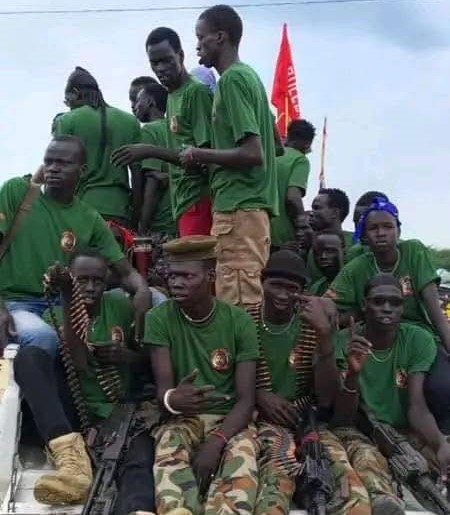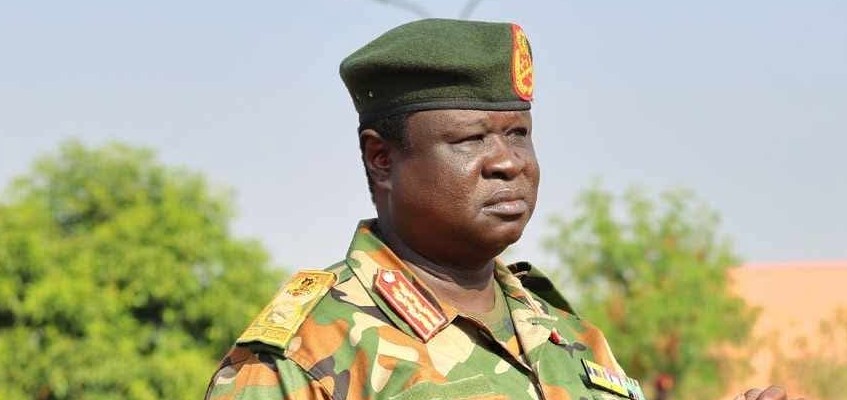South Sudan’s military chief has ordered an armed group in Jonglei State to integrate into the national army or face forcible disarmament, a move that observers warn could undermine the country’s fragile security.
Two orders, issued Sunday by Gen. Paul Nang Majok, target the Red Belt Movement in Bor County and armed youth in Warrap State. A third directive commands forces from the main opposition group, the Sudan People’s Liberation Army-In Opposition, to report to government army barracks as part of long-stalled security arrangements.
The ultimatums, delivered in a statement from military spokesperson Maj. Gen. Lul Ruai Koang, come as the implementation of the 2018 peace deal has largely stalled.
The military’s directives
The first order demands that the Red Belt Movement, which the state government recently designated a criminal organization in Bor County, join the South Sudan People’s Defence Forces (SSPDF) along with their weapons.
The military described it as a “golden opportunity and honor to serve.” Those who refuse “will face forcible disarmament at the earliest time possible,” the statement said.

The Red Belt Movement, whose members have recently been seen in green uniforms and carrying firearms in Bor town, has claimed it is a vigilante force protecting local communities from attacks by hostile neighbors.
The government says the group’s first known activity was an ambush on the national minister of wildlife in Jonglei in February.
The second order gives armed youth in Warrap State, President Kiir’s home state, 21 days to voluntarily surrender their weapons or face “a comprehensive forcible disarmament exercise.”
The third directive instructs SPLA-IO forces to report to the nearest SSPDF barracks to prepare for the next phase of the peace deal’s transitional security arrangements. The statement warned that non-compliant members would be “considered hostile forces.”
SPLA-IO and civil society react
The SPLA-IO, a key signatory to the 2018 agreement, rejected the order, arguing it violates the pact’s outlined procedures for the cantonment, training and unification of forces.
“This is a clear declaration that the 2018 peace deal is effectively null and void,” SPLA-IO Gen. John Sunday Martin told Radio Tamazuj. He accused the army chief of acting outside the peace framework and questioned why the army had previously attacked SPLA-IO sites.
Civil society leaders also expressed concern.
Bol Deng Bol, executive director of INTREPID South Sudan, said the approach of issuing threats, rather than pursuing dialogue, could backfire.
“This order is not a call for dialogue—it sounds like a threat, and may push these groups to isolate themselves further and potentially become more aggressive,” Bol told Radio Tamazuj.
He noted that many armed youth groups have emerged in parts of South Sudan in response to widespread insecurity and that forcible disarmament could leave communities vulnerable to attacks from neighboring regions.
A fragile peace under strain
The 2018 peace deal has been under severe strain. Its key provisions, including unifying rival forces into a single national army, have been repeatedly delayed.
In March, violence broke out between SSPDF and SPLA-IO forces following the arrest of SPLA-IO leader Riek Machar, who also serves as the country’s first vice president. The clashes led to SPLA-IO units being dislodged from several cantonment sites, further complicating the already faltering unification process.




